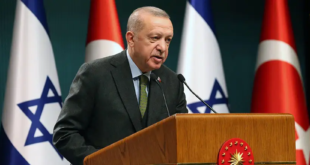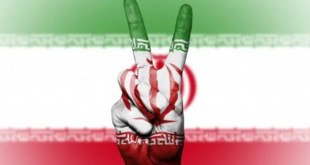VIENNA (AP) — A US-European drive to refer Iran to the UN Security Council is encountering fierce opposition and could be postponed despite deep international concerns about Tehran’s nuclear agenda, diplomats and government officials said Thursday.
Just days before planned action on referral, the diplomats and officials — some in Vienna, others elsewhere in Europe — told the Associated Press that the idea of giving Iran a deadline of several weeks to comply with international demands on its nuclear activities is gaining favour, instead.
“It would not be a change in policy but a change in timing,” said one European official about the possibility of delaying — but not withdrawing — the UN Security Council threat. There has been strong opposition from more than a dozen nations on the board of the International Atomic Energy Agency (IAEA) to a demand for referral at next week’s board meeting.
The officials and diplomats demanded anonymity because of the delicacy of the negotiations on what tack to take on Iran.
Their comments seemed to mirror indications from US Secretary of State Condoleezza Rice that Washington was prepared to delay again its drive for Security Council referral.
Rice last week appealed openly to China, Russia, India and other nations to support the United States in threatening Iran with sanctions for refusing to halt its nuclear programme.
Russia quickly registered its opposition to trying to impose sanctions now in the UN Security Council, and the White House acknowledged Wednesday that President George W. Bush was unable to get a commitment from Chinese President Hu Jintao.
Iran’s new president, Mahmoud Ahmadinejad, urged the UN not to d’etre bend to US pressure.
“The raison d’etre of the United Nations is to promote global peace and tranquility,” he told the General Assembly. “Therefore, any licence for preemptive measures which are essentially based on gauging intentions rather than objective facts … is a blatant contradiction to the very foundation of the United Nations and the letter and the spirit of its charter.” Washington had been a key force in trying to marshal enough support at Monday’s board meeting of the Vienna-based IAEA for referral. But in comments Wednesday, Rice indirectly acknowledged that drive was faltering.
“I am not so concerned about exactly when it happens,” Rice told the Fox News Editorial Board, “because I don’t think this matter is so urgent that it has to come on September 19.” The European Union has taken the lead in trying to persuade Iran to halt development of nuclear activities that could be used to make weapons in exchange for economic concessions.
The European official said that — as of Thursday — any resolution in Vienna demanding immediate referral to the Security Council would have “only a slim majority of two or three countries” on the 35-member IAEA board. Rice on Wednesday suggested the EU remained fully committed to referral, saying: “The question is how much support can you bring that is non-European support.” But officials and diplomats said that was not so. About a half dozen EU member nations — among them Italy, Spain and Portugal — are now openly questioning the authority of France, Britain and Germany to negotiate a resolution at the board meeting on behalf of the European Union, said the official. Iran’s lobby efforts against referral “have been rather successful,” said the official. “Both African countries and non-aligned countries are very keen on it not going to the Security Council.” A senior nonaligned diplomat in Vienna said informal but high-level contacts were under way between Tehran and key EU countries on what concessions Iran was prepared to make in exchange for a delay of the push to have Iran hauled before the Security Council.
Ahmadinejad is expected to reveal new Iranian proposals by the weekend at the UN summit of world leaders in New York, which it hopes will defuse the nuclear crisis. Among those leaning against the idea of immediate referral in favour of a several-weekslong deadline is IAEA head Mohammad Al Baradei, said several officials and diplomats.
One of them said Baradei “moved over to the camp” of countries opposed to referral over the past few weeks, as that group of countries has grown.
While an EU diplomat said Baradei had suggested a delay as one of several options, the European official said the IAEA chief appeared increasingly to be backing that approach over others in recent phone conversations with EU foreign ministers and Rice.
 Eurasia Press & News
Eurasia Press & News



